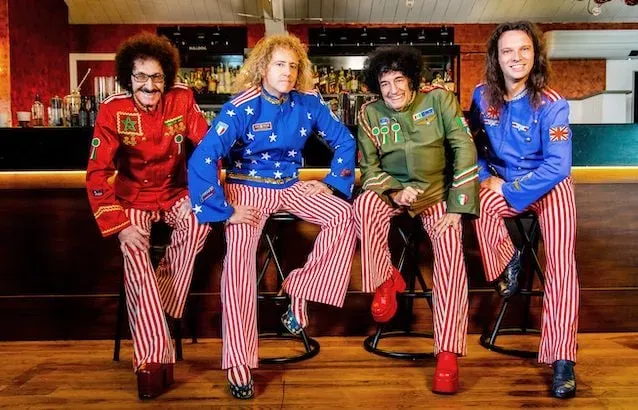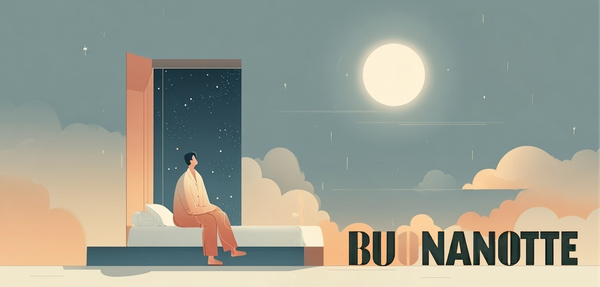Anima
NOUN [feminine]
Meaning and English translation 🔖
Soul, Spirit
🇬🇧 The non-physical part of a person, considered the center of thoughts, emotions, and personality.
🇮🇹 La parte non fisica di una persona, considerata il centro dei pensieri, emozioni e personalità.
| Masculine ♂️ | Feminine ♀️ | |
|---|---|---|
| Singular | - | l' - un' anima |
| Plural | - | le - delle anime |
Example sentences 💬
L'anima è considerata immortale in molte religioni.
The soul is considered immortal in many religions.
L’essere umano è formato di corpo e di anima.
Human being consists of body and soul.
This article is brought to you by Giulia School, where you can learn Italian the natural way—with real conversations and passionate teachers guiding you every step of the journey. It’s the closest thing to immersion you can get without living in Italy. Click here to learn more.
Idioms with anima 🇮🇹
Con tutta l'anima / Metterci l’anima
→ With all one's heart / To put one's soul into something
Ha lottato con tutta l'anima, ma ha perso la gara / Ci ha messo l'anima, ma ha perso la gara.
She fought with all her heart, but lost the race / She put her soul into it, but she lost the race.
Anima e corpo
→ Body and soul, wholeheartedly
Si è dedicata anima e corpo al suo lavoro.
She devoted herself body and soul to her work.
Essere l'anima di qualcosa
→ To be the life and soul of something
Ada è l'anima del gruppo, sempre piena di energia.
Ada is the life and soul of the group, always full of energy.
Anima gemella
→ Soulmate
Dopo anni di ricerca, ha finalmente trovato la sua anima gemella.
After years of searching, he finally found his soulmate.
Vendere l'anima al diavolo
→ To sell one's soul to the devil
Farebbe qualsiasi cosa per il successo, persino vendere l'anima al diavolo.
He would do anything for success, even sell his soul to the devil.
Anima in pena
→ Tormented soul
Vagava per la casa come un'anima in pena dopo aver ricevuto la brutta notizia.
He wandered around the house like a tormented soul after receiving the bad news.
Non c'è anima viva
→ There's not a living soul
Se vai in spiaggia all’alba, non c'è anima viva.
If you go to the beach at dawn, there is not a soul there.
Volere un bene dell'anima
→ To be extremely fond of someone
I nonni vogliono un bene dell'anima ai loro nipotini.
The grandparents are extremely fond of their grandchildren.
Rompere l'anima a qualcuno
→ To drive someone mad, to be a pain
Smettila di rompermi l'anima con le tue lamentele!
Stop driving me mad with your complaints!
Where does the word anima come from? 🔎
Anima comes from the Latin anima, which is related to the Greek ἄνεμος (ànemos), meaning "breath, wind".
Did you know that... 🤓
Impress your italian friends with curious facts about Italy and its culture
"ANIMA MIA" BY I CUGINI DI CAMPAGNA, AN IMMORTAL SOUL OF 1970s ITALIAN MUSIC
If you ask your Italian friends for a song associated with the word anima (soul), 9 out of 10 will tell you "Anima mia" by I Cugini di Campagna (the tenth will probably say "Sei nell'anima" by Gianna Nannini, a beautiful song!).
Released in 1973, this romantic ballad has become a classic of Italian music and is one of the most famous and beloved songs by this Italian group still active today.
The song, written by Ivano Michetti and Flavio Paulin, speaks of a deep and intense love. The phrase "Anima mia" is used as an affectionate term to address the loved one, emphasizing the deep connection between two souls.
The song was an extraordinary success, reaching the top of the Italian hit parade and remaining in the charts for many weeks. "Anima mia" became not only a symbol of I Cugini di Campagna's music but also a representative piece of Italian pop music of the 70s.
The success of "Anima mia" extended beyond Italian borders. The song was translated into several languages and performed by international artists, including Dalida in French ("Pour te dire je t'aime") and Frida from ABBA in English ("To the Morning").
Even today, "Anima mia" remains one of the most well-known and loved songs in the Italian repertoire, often played on the radio and sung in karaoke, testifying to its status as a timeless classic of Italian music.






